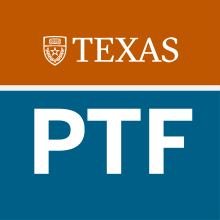Individual Fellow Initiatives

Characterizing Complexity and Frequency of Feedback Given to Students: What Actually Helps Achieve Learning Outcomes?
This project is aimed at improving learning outcomes in programming courses at UT Austin, specifically targeting ECE312 (Software Design and Implementation I) and ECE360C (Algorithms), but that can potentially be expanded to other programming courses and beyond. The project is designed to enhance students' understanding of fundamental concepts by characterizing the complexity and frequency of feedback provided during completion of assignments.

Elements of Computing Concentrations
The Computer Science department provides CS classes to the whole university via our Computer Science "Elements" program. The Elements sequence can be started by any student in any major with no prerequisites; later Elements courses only have prerequisites from earlier Elements courses. Some students choose to take just 1 or 2 CS classes in order to learn some programming, and others choose to take 18 hours in order to earn the Elements of Computing Certificate. The CS Elements program serves a very diverse population of students, in terms of backgrounds, majors, and goals.

The “Social/Wellness Module:” Providing Space for Wellbeing and Social Learning for Incoming UT Students
My project addresses the lack of built-in social/wellness-oriented interactions in introductory courses for

Enhancing Assessment Practices in Large Physics Courses
There exists a gap between instruction and assessment in large introductory physics courses. Recent
projects supported by the PTFs and the Texas Mindset Initiative have focused on classroom instruction and

The Compassion Project
Evidence from allied health fields shows that patients’ relationship with their provider is often the most therapeutic aspect of the health care encounter (Tresolini

Peer Mentor Leadership Project
The Peer Mentor Leadership Project (PMLP) empowers undergraduate students to explore and develop their leadership styles. Participants design and implement mentoring and leadership projects that align with their goals and values, while assessing the impact of their work. The program emphasizes introspection, reflection, and professional growth, helping students strengthen their resumes and leadership skills.

Making New Scientists: Supporting the Training of Incoming Science Majors
Traditional science degree programs concentrate primarily on content and are not known for preparing their graduates with other skills needed for scientific careers.

Student Success and Well-being
My project is designed to support engineering students primarily in their freshman and sophomore years, when they struggle the most, resulting in high failing rates. Students do not always implement the best study strategies as they transition from high school to college, and do not prioritize their self-care and well-being. College level coursework is significantly more difficult compared to high school level courses and require more critical and abstract thinking.

Mentored Research Learning: An Evaluation
Mentored research defies the traditional higher education approach, which separates research and teaching into distinct activities. Instead, mentored research fully integrates faculty research activities and student learning. In this approach, researchers do not simply carry out their research in isolation with a paid set of PhD-level research assistants. Further, students do not simply learn from in-class lectures or more traditional out-of-classroom experiences, such as study abroad.

STAMP of Success in Doctoral Education: Student Training, Advising, and Mentorship Practices
Success in a doctoral program can be captured by students’ adjustment to the academic community and their achievement. In recent years, growing concerns have been raised by media, policy makers, and academics about reported mental health issues amongst PhD students. Research suggests that the mental health of PhD students can be improved when there are available supports related to management of work-life balance, workload, decision-making, and leadership styles that lead to satisfactory and constructive work relations (Levecque et al., 2017).

Online Drivers Exercise
Since my first semester at UT (Fall 2011) I’ve taught about 10,000 students across all colleges. From this immense amount of student interaction, I’ve come to believe that many of our students lack the tools and techniques to define their own personal path to success and are not confident in how to best make decisions about their future. As a result of this, I believe many students are seeking what they see as a “safe path” (e.g.

Teaching the University: Enhancing Student Understanding and Appreciation of the University
My project is intended to address a lack of understanding among most undergraduate students of the university both as an institution and as a space in which intellectual life is pursued. This lack of understanding among undergraduates is intertwined, I believe, with a broader lack of appreciation for higher education/academia in our cultural and civic life.

Professional Development for Undergraduate Students Majoring in the Biological Sciences
I seek the opportunity to create a professional development curriculum that would provide students a structured vehicle for developing professional confidence and self-awareness, and facilitate early success in an increasingly competitive ‘real-world.’ My desire to work on this idea as a Provost Teaching Fellow stems from the overwhelmingly positive student response to professional development activities that I have incorporated in several of my courses.

Thinking Beyond the Four Years: Assessing a Program for Coaching Career Success
The project is a longitudinal partnership with the Vick Center for Strategic Advising, College of Education faculty, Project 2021 staff, and other Longhorns to measure existing attempts to teach useful skills such as emotional intelligence so that students can make constructive decisions while at UT and then be prepared for the significant life transition that is one’s first career post-graduation. The key activities include semesterly surveys and interviews with students using Vick Center services such as in-person visits and online modules.

